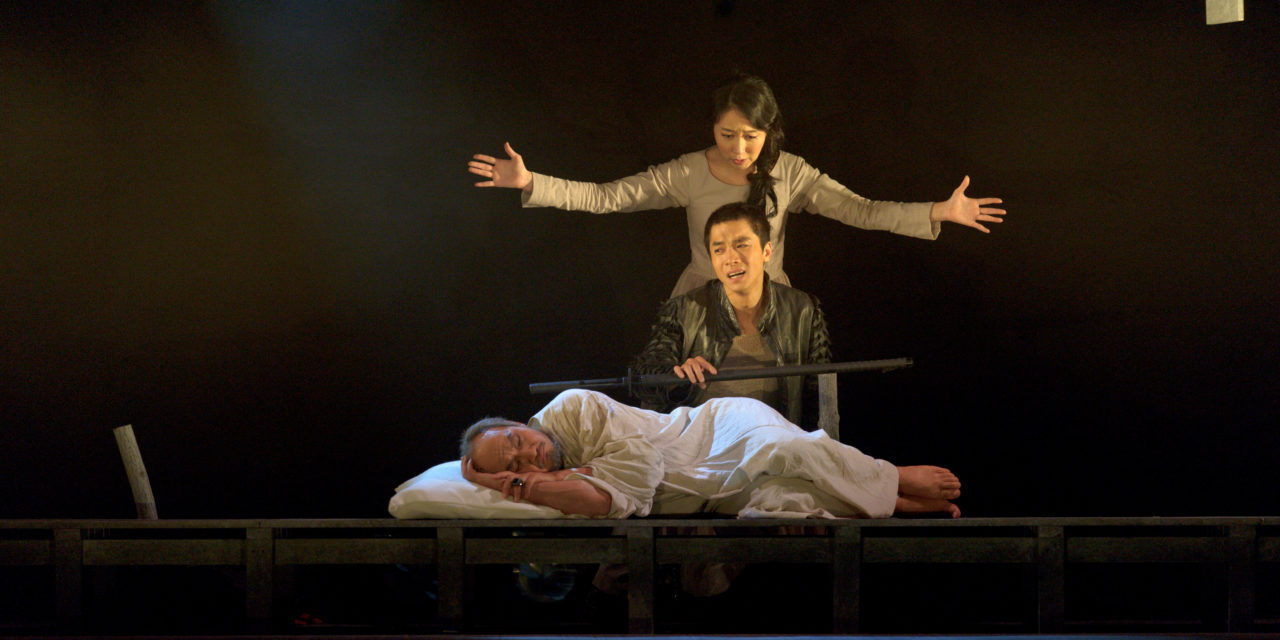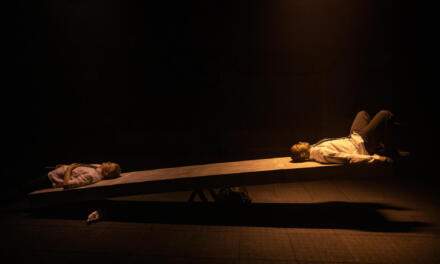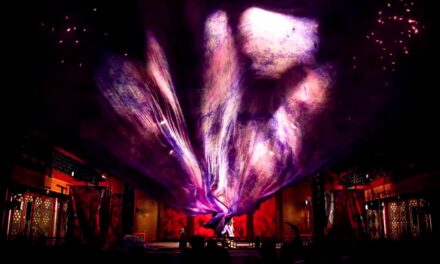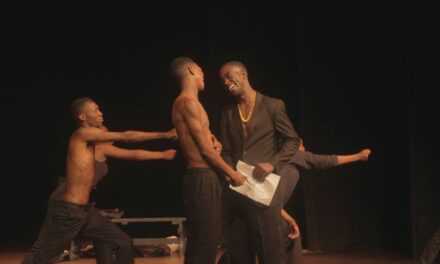Award-winning South Korean playwright and educator Ko Yeon-ok reflects about her teaching practice in a conversation with Kee-Yoon Nahm.
This is Part II of a three-part article. Go back to Part I here and read Part III here.
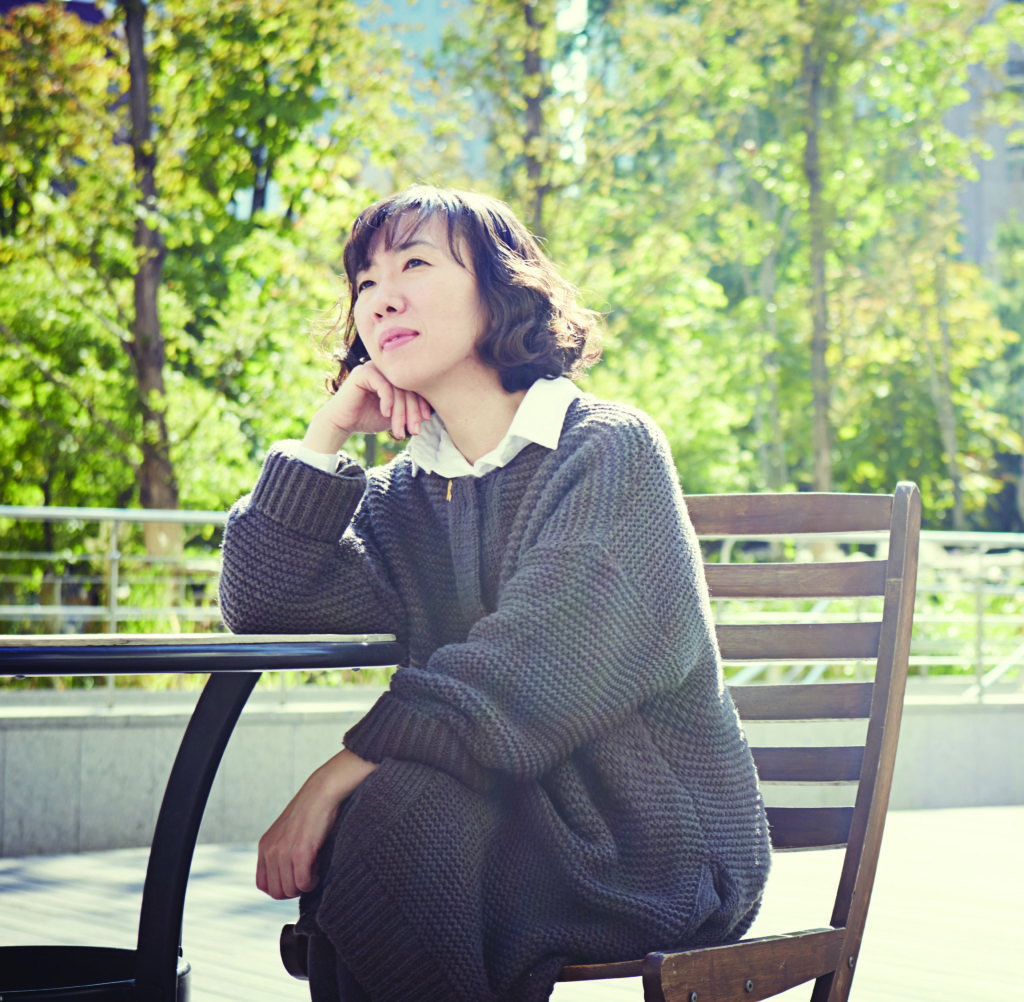
Ko Yeon-ok (Courtesy of the playwright)
Nahm: Do you think there are still certain rules in playwriting today?
Ko: Modern drama is moving in the direction of breaking dramatic rules and traditional plot structure. A lot of students are interested in deconstructive writing. But I’ve thought about this a lot, and I believe that the basic structure of kiseungjeonkyul is still largely intact [1]. That’s how stories are constructed, and its necessary in drama, at least that’s what I think. I see that when I teach students or see other people’s work. If I were to state that as a “rule,” I would say that an objective that is presented at the beginning must be fully dissected over the course of the play. In other words, a fundamental question that existed beneath the initial objective must be revealed and resolved eventually. I think that is a general rule in modern theatre. This rule is still around. Maybe plot development in the strictest sense—climactic explosion of conflict and so on—is fading out or being deconstructed. But the idea that when an objective breaks apart, something that had existed as subtext surfaces and is realized is still relevant.
Nahm: You mean on a character level?
Ko: Yes, an objective that a character has.
Nahm: So you could say that dramatic characters are still intact.
Ko: Right. Regarding character, there are plays where every character is the main character. Traditionally, there are protagonists and antagonists, but I think that the concept of a supporting character has changed a lot. Previously, the main character guides the narrative while surrounding characters twist this narrative line and create dramatic incidents. But now, I think that these surrounding characters exert a lot more influence, not through some kind of critical event, but by having other characters pass through the magnetic field that they create. For example, say that a mother is a supporting character. Other characters have to pass through this figure of the mother. And the main characters change as a result of that, not through a specific incident, but by reorienting their inner state in a new direction.
Nahm: That’s a kind of promise that you make with the audience, right? That a character’s objective will be resolved, either in success or failure, by the end of the play. If that promise isn’t kept in a student’s work, how do you bring it to their attention?
Ko: I think it’s wrong to heavily edit students’ work. My most important goal when reading a student’s play is to recognize this young writer’s potential. What kind of world is their story depicting? The essential thing in playwriting is the unique world that a writer sees. How do you represent the unique world that you see in the play? I try to understand how the writer sees the world. That’s the only way that I can help them continue to develop their stories. If I start dictating to them what to write, that potential is stifled. They are still fragile buds. A student may have written a character whose objective is not fully realized in the play, but there’s no way to tell when the writer can solve that problem on their own. What’s important is that the writer keeps moving forward and taking risks. And it only makes sense for me to continue observing them as they do that.
Nahm: As I hear you speak, I can’t help but think that you protect your students a lot. Is that something that you picked up through your experience teaching, or was it always something important to you?
Ko: I never formally studied playwriting. I just somehow found my way as a playwright. I think that worked better for me, that no one taught me formally. There are plays that feel a little artificial like it’s following points from a lesson. I’m a bit disgusted by plays like that, plays that feel like factory products. I am much more in favor of plays that seem like nothing is happening, yet something feels fresh in the characterization or the language—even if it’s not technically a well-written play. I’ve written plays for about twenty years now, and it’s still hard. Technically sound plays are something you write after ten or twenty years of experience. Up to that point, it’s more important to spend your time figuring out what questions you want to bring to your plays. That’s the only way that writers can continue to develop and for there to be diverse stories. These playwrights have to all mature together for Korean theatre to become richer. In other words, writers with potential have to stay in the theatre. That’s my goal: for writers interested in playwriting to not disappear.
Nahm: Turn that around and you’re saying that a lot of young writers do disappear.
Ko: They do. They have painful experiences. It’s the same thing in the U.S., but everything is centered on premieres. If a playwright’s debut is a failure, if the director misinterprets the play or somehow damages it, that play can’t reach the stage for years no matter how good the text is. If that happens, it’s very hard for a writer to stay in the field. A lot of writers leave the theatre like that. In other literary genres, you just publish another book, but not here. So when I run workshops or teach classes, I feel an obligation to prevent these writers from giving up and, how can I say this, to pave the way for future playwrights. For example, I branch out into adaptation or refining the language in someone else’s translation. And even if one of my plays fail in a production, I try to set an example of the play being produced again. We need a better safety net for playwrights.
Nahm: You’re creating a model through your own practice.
Ko: It’s very hard. It’s hard but I have to do it. We senior playwrights all have to instead of trying to survive on our own.
Nahm: You’ve already mentioned that the essential question that you bring to your play is more important than skills or techniques. But if there is still something important to learn about playwriting, what would it be?
Ko: In addition to what I said before, you have to work hard to represent the world that you see. The play has to be airtight, that’s how you develop your own unique stories and style. I always say you actually write plays with your butt, because it all depends on how long you can sit in place. Also, you always have to keep your eyes open to the world. You must think about things happening out in society, what causes those things, and where they are headed. The benefit of being a writer, at least in the sense of finding solace, is that, while things happen to us beyond our control, a writer is in a position to analyze these things even though they’re suffering the same. You have to realize that there is nothing in the world that is completely unrelated to your life. It’s important to keep observing and analyzing things around you with the awareness that they are all affecting you.
Nahm: Do you think playwrights have responsibilities toward society or their community?
Ko: Yes. It’s the same for all writers. They all have to work towards making society a better place. I don’t think playwrights should write plays for self-fulfillment. What’s more, playwrights write texts that are rarely experienced in themselves. Many other people—directors, actors, and other staff—analyze the play and spend months rehearsing it. And then it meets audiences. So I think plays have to be about important things, things valuable enough for all of these people to be involved. In order to write important stories, you have to latch onto an urgent question, as I mentioned before. I think this has a noticeable effect on the playwright’s own attitude in life. Some people say that I’m like a monk when I talk about how a playwright should live. But I think that if you ignore things that happen out in the world, or do shameful things, it’s all there in your writing for people to see. Your writing says that you are hiding something. This is especially the case for playwrights. So I always tell my students that you have to live well to write well.
Nahm: That sounds extremely difficult.
Ko: I often tell them not to do anything that they will be ashamed of later.
Nahm: Regarding your goals as an educator, what you said before really resonates with me, that you teach so that promising playwrights don’t disappear. Is there anything else you’d like to add to that? Or do you have another important goal as an educator?
Ko: Basically, playwrights don’t stay in the field because the theatre environment is director-oriented, and writers are often instrumentalized. At the same time, playwrights have to be more proactive about securing contemporary relevance. Society is changing a lot. Trends are changing and things are going digital. But the genre of drama itself hasn’t changed much as if it’s trapped in a bottle. A lot of playwrights, even young playwrights, write dramas that feel derivative and outdated. Playwrights have to get away from that. They have to communicate with audiences and make their work relevant today. The structure of drama can be a double-edged sword—you can get trapped in it if you’re not careful, but it can also be incredibly open if you make the effort.
[1] Translator’s note: A technical term in classical Chinese poetry that charts the development of a four line poem, from the introduction, to development, to twist, to the conclusion. It is somewhat analogous to Freytag’s pyramid in Western dramatic theory. More commonly known in English by its Japanese pronunciation kishōtenketsu.
Continue reading the part III.
This interview is part of the project The Global Playwriting Workbook (Methuen Drama 2019), by Ana Candida Carneiro.
This post was written by the author in their personal capacity.The opinions expressed in this article are the author’s own and do not reflect the view of The Theatre Times, their staff or collaborators.
This post was written by Kee-Yoon Nahm.
The views expressed here belong to the author and do not necessarily reflect our views and opinions.

